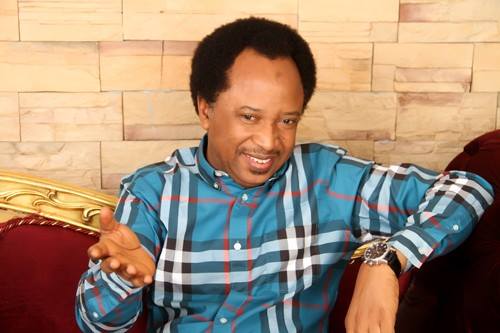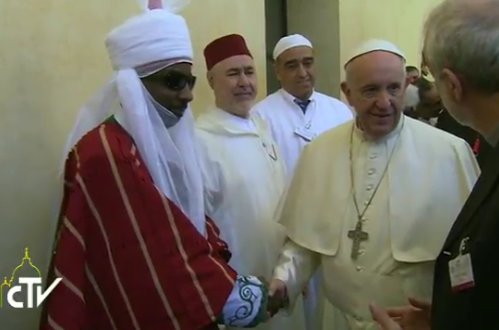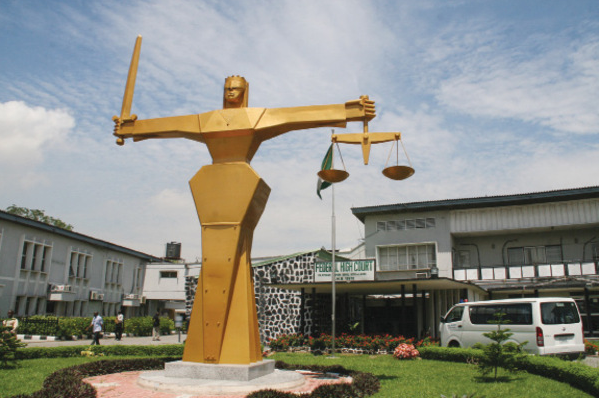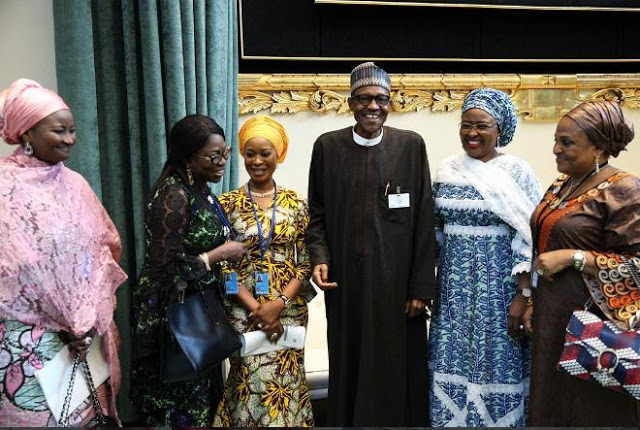Yakubu Dogara, speaker of the house of representatives, says Abdulmumin Jibrin, former chairman of the house committee on appropriations, is out to destroy the lower chamber as an institution.
However, he expressed confidence that Jibrin would not succeed, saying: “If history is any guide, no one in a democracy has ever succeeded in destroying a democratic institution such as the house of representatives.”
Dogara said the house would not be distracted by “any insidious antics however well-orchestrated, and falsehoods however cleverly propagated to confuse Nigerians”.
Instead, he said the house would “remain accountable to Nigerians for our conduct as public servants”.
Advertisement
He also said The plenary was “not the appropriate venue to address allegations made against individual honourable members, many of which are criminal in nature”.
“There are constitutional avenues for that,” he said, adding that the lawmakers were”patriotic enough to understand the mood of the nation and the critical and sensitive matters of urgent national importance deserving our immediate attention”.
THE FULL SPEECH
Advertisement
1. INTRODUCTION:
I am delighted to welcome us all back from the annual recess. I specially congratulate our Muslim colleagues for the successful celebration of Id el Kabir. May the Almighty God be praised for His divine protection over us during the recess and for bringing us back safely. I trust that we used the time to interact with our constituents and have returned rejuvenated both physically and mentally to face the arduous legislative tasks ahead.
2. REVIEW OF RECENT DEVELOPMENTS:
The events of the recent weeks give cause for grave concern and pose existential threats to the corporate integrity and image of the House as a democratic institution designed by the Constitution to play a vital role in our nation’s governmental system. Shortly after we adjourned for the recess, our colleague and erstwhile Chairman Appropriation Committee, embarked on a strange propaganda clearly aimed not only at the destruction of the image of some members but a systematic destruction of the institution of the House of Representatives and indeed the legislature by portraying it to the public as an irredeemably corrupt institution. The chiefest motivation for his actions, as he has said severally and repeatedly is to have the four principal officers removed from their positions and not that the truth should be known. It was TS Eliot who once said, “the last temptation is the greatest treason: to do the right deed for the wrong reasons”. Unfortunately TS Elliot didn’t tell us what it is when someone does the wrong deed for the wrong reasons. These wild allegations which were initially directed at four Members of the House Leadership progressively engulfed the entire membership of the House and then the Institution.
We chose the part of maturity by maintaining great restraint in the face of all these, fully conscious of the fact that at the appropriate time, the truth will prevail. I have bad news for those who think they can pull down this Institution of the people. If history is any guide, no one, in a democracy has ever succeeded in destroying a democratic Institution such as the House of Representatives, although examples abound of such effort by people both within and outside the Institution. Ours cannot be different.
Advertisement
Let me assure all Nigerians that the House is fully conscious of its watchdog role in our democracy and will always strive to earn the trust and confidence of Nigerians. We are also patriotic enough to understand the mood of the nation and the critical and sensitive matters of urgent national importance deserving our immediate attention. We will therefore not be distracted by any insidious antics however well orchestrated, and falsehoods however cleverly propagated to confuse Nigerians. We remain accountable to Nigerians for our conduct as public servants.
This is not the appropriate venue to address allegations made against individual Honourable Members many of which are criminal in nature as there are constitutional avenues for that. This is more so that these matters are before all the security agencies and ridiculously before some Foreign Missions! It is however important to briefly say that nothing warrants the deliberate attempt at destructive public misinformation aimed at discrediting the House as an institution. These events have shown that we certainly need to engage more with the Nigerian public on the functions and modus operandi of the National Assembly, which is a democratic institution that relies on public support for its activities. I am sure we will emerge from all these stronger and more committed to attainment of national goals than before.
3. THE ECONOMY:
The state of our economy is of urgent and critical importance.That Nigeria has gone into recession is a very worrisome development that calls for emergency measures to be taken. All hands must be on deck to tackle the myriads of problems facing us. This is not the time for partisanship. This is not the time to score political points. This is not the time for grandstanding. This is not the time for blame games. The situation and the times call for bold, courageous, enlightened and purposeful leadership. This is a patriotic call to action from all stakeholders and indeed all Nigerians. We must unite as a people to rescue Nigeria from the shackles of poverty, social and economic underdevelopment.
To achieve the needed result, we must never shy away from telling our brothers and sisters that the change we seek can never be about what we are changing from but what we are changing to. That transformation has and will always be about what we embrace not what we have abandoned.
Advertisement
As leaders, we must take responsibility for the present economic situation although we are not directly responsible for it. We must admit that this is a difficult thing to do in the present generation that spurns responsibility. Everyone wants to blame someone for something that goes wrong. Unfortunately, history teaches us that no one, no nation has ever achieved greatness except on account of the creative hunger that comes with accepting responsibility. It was Winston Churchill who summed up this lesson of history in six words, thus: “the price of greatness is responsibility”. Every NIGERIAN must understand this so that together we will seize the opportunity this crisis presents to rebound and build a secure and prosperous future for our dear nation.
These are no times like any other, I therefore call on all of us and indeed the National Assembly to continue giving legislative support to the Executive on all well thought out and effective solutions to our economic problems. More than ever before, we must be prepared to listen more, think more and work more. We must also consult the abundant pool of experts both in Nigeria and abroad to fashion out short, medium and long term measures for dealing with the present crisis and setting our country on the path of sustained economic growth.
Advertisement
The recent retreat by Mr President with his cabinet and sundry statutory appointees is most commendable. It is in this regard, that I urge Mr President to consider holding a joint emergency session of the National Assembly to brief both the Legislature and indeed Nigerians of his plans to pull Nigeria out of recession. This will provide opportunity for all stakeholders to be on the same page and to act in concert for urgent national recovery. It will also further consolidate existing ongoing consultations between the Presidency and the National Assembly on the way forward.We must never miss the opportunity the present travails offers us to launch Nigeria into its rightful destiny and place among the comity of prosperous nations.
As representatives of the people we are well acquainted with the alarming state of the citizens penury. We will therefore collaborate with the Executive in fine tuning any observed limitations in policy formulation and implementation to ensure speedy delivery of services to our people. We need to immediately take a second look at the pace of budget execution; the spiraling rise of the dollar against the Naira and the multiple exchange rate regime; the impact of the Treasury Single Account on the economy, investment in infrastructure, tackling unemployment, among others.
Advertisement
4. BUDGET REFORMS:
Honourable Colleagues, there is no doubt that over the years the procedure for the making of the National budget has been generally unsatisfactory. There is not enough pre-budget consultations and interface between the Executive and the Legislature. The Appropriation Bill is often submitted very late by the Executive. There is no consistency with respect to the three year commitment on MTEF. There is no clear national development plan agreed to by all stakeholders, which the Legislature would be required to adhere to. The integrity and methodology for project selection is questionable, and often discretionary and whimsical. Governmental goals are not clear enough and the budget does not adequately reflect the priorities of government. It is in realization of this state of affairs that the issue of budget reform was conspicuously embedded in our Legislative Agenda unfolded for the Eight Assembly in July 2015. It provides in part as follows:
“The Budgetary process has remained one of the major challenges of Nigeria’s democracy since 1999. Legislative measures will be introduced to support and implement a proper budgetary process that supports a strong and robust National Economy.
Advertisement
The review of the budgetary process will emphasize the following:
• Promotion of an inclusive budgetary process that seeks the cooperation of the Executive in institutionalising pre-budget interface and consultations.
• Adoption of an effective Medium-Term Expenditure Framework (MTEF).
• Strict compliance with the provisions of the Fiscal Responsibility Act (FRA) 2007.”
On project selection process we had earlier committed ourselves in our Legislative Agenda as follows:
“Integrity of project selection process
Our commitment to reform of the Budget Process should consider the integrity of the project selection process in the Annual Budget estimates submitted to the National Assembly by the President. A mechanism that makes the process of Project selection more transparent, equitable, professional, accountable and needs based shall be put in place with the cooperation of the Executive. The budget process should include basis and justification for project selection.”
It should be noted that these were commitments made in July 2015, and not because of any recent events or circumstances. Moreover, in the House legislative calendar, Budget reform process was scheduled for the Second session.
Accordingly, as I promised before the recess, Leadership has already commenced consultations and a Special Budget Reform Committee, made up of experts and some Hon members would soon be inaugurated. We expect this Committee to lay the groundwork for a better budget process in 2017.
In this regard, we will partner with the Senate and also consult the Executive to ensure that the budget process meets acceptable standards that conform to international best practices. By the design of our Constitution, budget process is not the sole prerogative of one Chamber but a collaborative process involving both Chambers and the Executive.The idea of a Committee Chairman or even a Committee of the National Assembly arrogating to itself the sole authority over the Budget is preposterous and must never be countenanced.
5. THE ROLE OF THE NATIONAL ASSEMBLY IN THE BUDGET PROCESS:
Recently, controversy seems to have arisen as to the role and powers of the National Assembly on Budgetary matters. I therefore consider it appropriate to say a few words on this matter.
From the community construction of Sections 59, 80 and 81 of the Constitution of the Federal Republic of Nigeria, the role of the legislature on the “estimates of revenues and expenditure of the Federation for the following financial year “submitted by the President pursuant to Section 81 (1) &(2) of the constitution is NOT CEREMONIAL. It is in the contemplation of the possibility of differing opinion of the legislature on the estimates so submitted that Section 59(4) provides a resolution by way of veto override. For the avoidance of doubt, our constitution has created a budget writing legislature. Section 80(4) prescribes to the effect that no public funds shall be spent “except in the MANNER prescribed by the National Assembly” This means that the legislature must diligently scrutinize the estimates submitted and cure all observed defects including imbalances in order to fashion a budget that meets the constitutional test of making laws “for peace, order and good government”.
Indeed the ordinary lawmaking powers of the National Assembly guaranteed under S.4 of the Constitution has not been ousted, even though the President initiates a financial bill. It is therefore inconceivable that when the legislature performs this constitutional function lawfully, it will be construed otherwise. The budget process comes to an end when it is certified by the Clerk to the National Assembly, being the only authority so designated by the Acts Authentication Act, LFN, 2004 and signed into law by Mr President. The 2016 Appropriation Act followed this procedure, strictly.
6. 2016 BUDGET IMPLEMENTATION AND NATIONAL ASSEMBLY OVERSIGHT ACTIVITIES:
An Appropriation Bill when signed by the President becomes a law of the Federation. All authorities and persons in the Federal Republic of Nigeria are bound to obey the dictates of law, especially in a constitutional democracy like Nigeria. The Budget is therefore not just a piece of paper to be treated with disdain. When the revenue targets are not met, both the Executive and the legislature are enjoined to work in a cooperative manner to remove any issues arising therefrom. Indeed the 2016 Appropriation Act in Section 6, has given an indication on how it should be resolved.When a Budget is not effectively implemented by the Executive, and adequate reasons are not given, it undermines citizens faith in governance, as the budget is perhaps the most effective tool for addressing poverty and underdevelopment. Government expenditure envisaged in effective budget implementation helps to put more money in the hands of citizens, puts more money in circulation and helps to reflate the economy.
We therefore welcome increased budgetary releases for Capital projects just announced and request for even more as provided by law.
In furtherance of the constitutional responsibility of the National Assembly to act as an effective check on the Executive on behalf of the Nigerian people, I hereby direct various House Committees to conduct a fact finding exercise on the extent and level of budget implementation by various MDAs. We must take our oversight responsibilities very seriously and report back to the House. It is the Report of the House Committees that will determine Appropriation to any MDA in 2017.
7. CONSTITUENCY OR ZONAL INTERVENTION PROJECTS:
Section 4 (2) of the Constitution mandates the National Assembly to “make laws for the peace, order and good government” of the Federation. Again under the Fundamental Objectives and Directive Principles of State Policy provisions in Chapter Two, which are binding on “all organs of government and all authorities and persons, exercising legislative, executive or judicial powers”, more specifically the Economic Objectives in Section 16 thereof, government policy is mandatorily to ensure planned and balanced development devoid of concentrating wealth or the means of production and exchange in the hands of a few individuals or of a group.
The idea of Constituency or Zonal intervention projects is to remedy flaws in the estimates of revenues and expenditure where there is deviation from the fundamental objective of equitable spread of planned development. This legislative intervention is complementary rather than conflictive. The templates and project prototypes are designed by the Executive while the budgeting modalities are mutually agreed. As we have repeatedly said, no member of the National Assembly is given cash or contracts for the projects.We all know that execution of projects is the prerogative of the Executive Branch.
8. CONCLUSION:
I wish to once again assure Nigerians that we remain accountable and will strive to justify the mandate given to us to serve our people as we engineer positive solutions to rescuing the Nigerian economy from this unfortunate recession and rebuild a robust diversified economy. Nigerians should continue to repose confidence in the legislature as we assure that we will continue to work in partnership with Mr President and all arms of Government in order to deliver on national priorities for the Nigeria of our dreams to emerge.
God bless you all and may God bless the Federal Republic of Nigeria.
Add a comment






